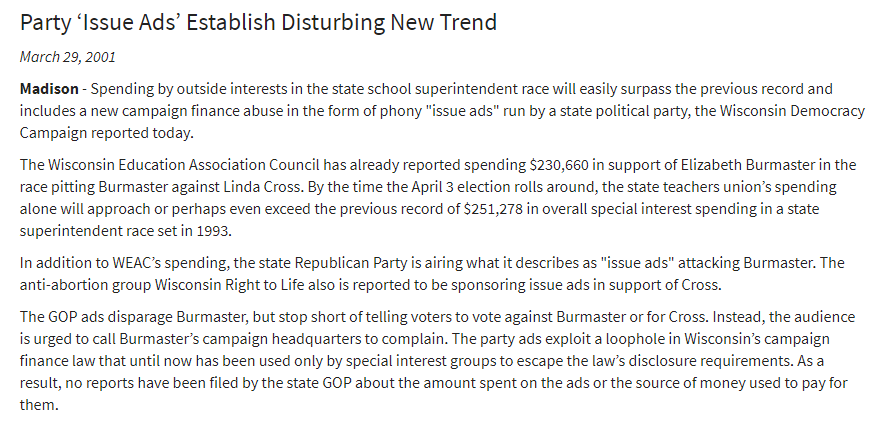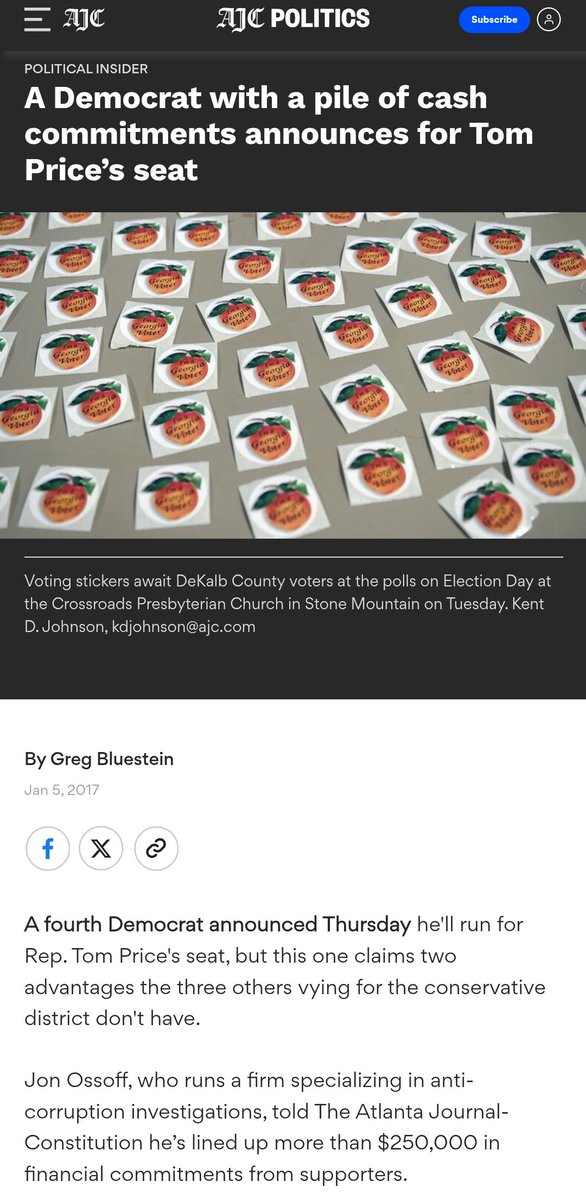Is there any research on how well-correlated "nonpartisan in name only" elections tend to be with partisan ones?
Actually when is the last time the D-aligned candidate did NOT win Wisconsin Superintendent Of Public Instruction? (It looks to me like Herbert Glover, John Benson, Elizabeth Burmaster, and of course Tony Evers were the "Dane County" candidates...)
Democrats should try to get non-partisan positions on issues where they have issue ownership everywhere possible...sort of like how Republicans have uh, district attorneys?
Here's another question, why the hell did voters turn out the incumbent superintendent of public education in 1981. Google is not promising...
2001...was Burmaster not the liberal candidate?

https://twitter.com/baseballot/status/1379623250712522752

This makes me wonder if Thompson had been the left-endorsed candidate when she won in 1977 (and/or 1973?) but feuded with those groups in office? 

• • •
Missing some Tweet in this thread? You can try to
force a refresh













